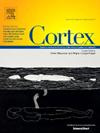A phonological input buffer for numbers
IF 3.2
2区 心理学
Q1 BEHAVIORAL SCIENCES
引用次数: 0
Abstract
The ability to comprehend oral numbers is central to numerical literacy, yet the mechanisms enabling it are still poorly understood. Here we show that, as some have hypothesized, short-term memory is involved in this process, and we also show how. We report two adults with developmental short-term memory deficit. They performed poorly in writing numbers to dictation and in other tasks requiring number comprehension, but not in tasks requiring other aspects of number processing. Their performance level was modulated by the memory load imposed by the task, and they made a variety of error types–digit substitutions as well as violations of the number's syntactic structure. We conclude that their deficit was in a short-term memory store which serves the verbal-phonological input of numbers–a phonological input buffer for numbers. Detailed error analysis suggests that this buffer serves as a workbench in which number words are stored before parsing their syntactic structure. Based on these and previous findings, we propose a detailed cognitive model for the verbal-phonological input of numbers, in which the phonological input buffer has a central role.
数字的语音输入缓冲器
理解口头数字的能力是数字素养的核心,但实现它的机制仍然知之甚少。正如一些人假设的那样,我们在这里展示了短期记忆参与了这个过程,我们也展示了它是如何参与的。我们报告了两个患有发展性短期记忆缺陷的成年人。他们在听写数字和其他需要数字理解的任务中表现不佳,但在需要数字处理其他方面的任务中表现良好。它们的性能水平受到任务所施加的内存负荷的影响,并且它们会产生各种错误类型——数字替换以及违反数字的语法结构。我们的结论是,他们的缺陷是在短期记忆存储中,这个存储服务于数字的语音输入——数字的语音输入缓冲器。详细的错误分析表明,在解析数字单词的语法结构之前,这个缓冲区可以作为一个工作台来存储数字单词。在此基础上,我们提出了一个详细的数字语音输入认知模型,其中语音输入缓冲起着核心作用。
本文章由计算机程序翻译,如有差异,请以英文原文为准。
求助全文
约1分钟内获得全文
求助全文
来源期刊

Cortex
医学-行为科学
CiteScore
7.00
自引率
5.60%
发文量
250
审稿时长
74 days
期刊介绍:
CORTEX is an international journal devoted to the study of cognition and of the relationship between the nervous system and mental processes, particularly as these are reflected in the behaviour of patients with acquired brain lesions, normal volunteers, children with typical and atypical development, and in the activation of brain regions and systems as recorded by functional neuroimaging techniques. It was founded in 1964 by Ennio De Renzi.
 求助内容:
求助内容: 应助结果提醒方式:
应助结果提醒方式:


